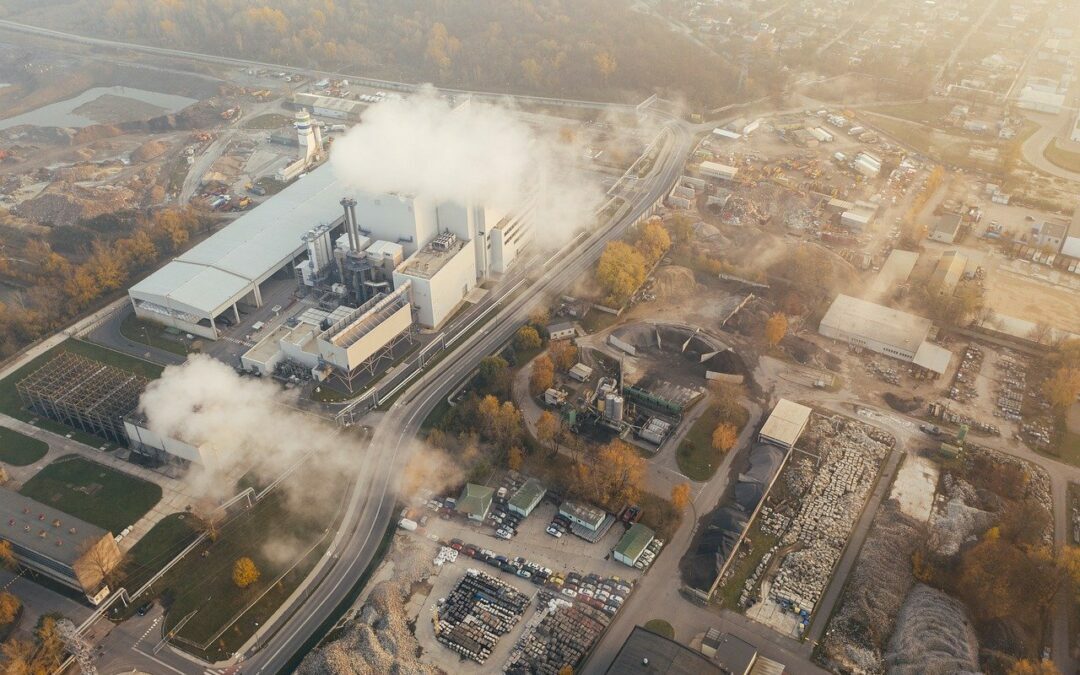
13-08-2024 | Noticias-en
On January 10, 2023, the Organic Law to Promote the Violet Economy was issued and published in the Official Registry Supplement No. 234 of January 20, 2023. Article 18 of the law establishes that “(…) Company Equality Plans are a set of measures, adopted after carrying out a diagnosis of the situation, created with the aim of achieving equal treatment of opportunities between women and men in the company, eliminating discrimination of any type of gender and multiculturalism. Equality Plans will include the strategies and practices to be adopted to achieve them, as well as the establishment of effective systems for monitoring and evaluating the objectives set. Equality plans will include all departments of a company, without prejudice to the establishment of appropriate special actions with respect to certain work centers.”
Subsequently, through Ministerial Agreement No. MDT-2024-013 of January 19, 2024, published in the Official Registry Supplement No. 492 of February 5, 2024, the Ministry of Labor issued the Guidelines for the Registration of Equality Plans.
On July 29, 2024, Ministerial Agreement No. MDT-2024-099 was signed by the Minister of Labor Ivonne Elizabeth Núñez Figueroa with the purpose of updating the procedures and requirements for the registration of Equality Plans in companies with 50 or more workers.
In said ministerial agreement, the second paragraph of the First Transitional Provision of Ministerial Agreement No. MDT-2024-013 is amended, mentioning the following:
“Those employers who have a payroll of 50 or more workers must register the “Equality Plans” with the Ministry of Labor by July 31, 2025; and, once this period has concluded, the Ministry of Labor will proceed with the corresponding control and sanction process in case of evidence of failure to comply with the “Equality Plan”
In addition, it was indicated that the Ministry of Labor will proceed with control and sanction processes in case of non-compliance after this deadline.
If you require additional information, please contact the email laboral@bustamantefabara.com

02-07-2024 | Noticias-en
New provisions of the Ministry of Labor, Employment and Social Security (MTESS) are established to update and simplify registration in the Employer-Worker Registry, the presentation of mandatory documents and work books, and the electronic transmission of data and documents.
1. Registration in the Employer-Worker Registry
All employers must register in the Employer-Employee Registry at the start of their activities and register their branches in the event of new openings.
Registration in the Employer-Worker Registry can be done through:
MTESS web platform.
Web platform of the Unified System for Opening and Closing Companies (SUACE).
Automated registration through the link between the computer systems of the MTESS and the Social Security Institute (IPS).
Regarding branches, these must be registered:
Branches with economic activity different from those registered: At the beginning of the employment relationship;
Branches that have the same activity different from those registered: Upon opening of the branch in the RUC.
2. Communications Mandatory to the MTESS
The following communications are established as mandatory:
Entries and exits of workers;
Licenses, permits and vacations;
Disciplinary sanctions;
Work accidents and occupational diseases;
Salary settlements, Christmas bonuses, family bonuses;
Justified and unjustified absences;
Notice communications and settlements for termination of employment contract;
Enabling daycare centers and breastfeeding rooms.
Updating company and employee data through the MTESS platform.
3. Labor Information Book
The Labor Information Book is enabled, replacing the labor books of salaries and wages, vacations and employees.
The Labor Information Book will be kept in digital format and records detailed information on workers in accordance with communications made by employers to the MTESS platform.
For MSMEs, this book is replaced by the Single Personnel Registry in digital format.
The validity of the book requires confirmation of the data by the employer within the period set by the MTESS. The confirmation will occur automatically at the end of the period, with a mechanism to rectify or modify the data later.
The Labor Information Book contains the following information:
Name and surname, address, identity card, date of birth, marital status, profession, position, nationality.
Start and end date of the employment relationship.
Days and hours worked.
Weekly day of rest.
Salaries received and their purpose.
Overtime worked and amount received for them.
Dates on which each of the workers took their vacations, the duration and the remuneration granted.
Christmas bonus.
4. Digital System for the Transmission of Data and Documents
The MTESS will implement a platform for the digital transmission of data and documents that employers must submit in accordance with current regulations.
The MTESS and IPS systems will be linked to automate communications regarding the entry and exit of workers and employer registrations.
5. Fines for Non-Compliance
Registrations on the MTESS web platform must be completed within 60 days. Failure to comply will be punished with fines of 10 to 20 minimum daily wages.
Late communication of data will be punished with fines of 1 to 3 minimum daily wages. Lesser fines will apply to MSMEs.
6. Gradual Implementation
The MTESS will establish the dates for the gradual entry into force of the Labor Information Books and the Single Personnel Registry in digital format and the employers that will be reached.
Employers who are not temporarily covered must continue to submit their pending payroll forms for the 2024 period and prior periods, and make the mandatory communications through the MTESS platform.
Failure to submit tax forms will be punished with fines of 10 to 20 days’ wages, with lesser fines for MSMEs.
7. Retroactivity
Employers affected by the gradual implementation will have to retroactively make communications and updates from January 1, 2024 to establish books and records of labor information.

04-03-2024 | Noticias-en
The Ministry of Labor, Employment and Social Security (MTEPS), through a ministerial resolution issued on February 16, 2024 (No. 176/2024), has determined the approval of the Regulation of notifications through electronic means.
The purpose of the approval of this regulation is to implement and regulate the notifications of administrative acts and actions issued by the MTEPS, in order to avoid violations to the parties involved, and to allow employers and workers to have full knowledge of all the procedures and procedures. socio-laboral.
This provision is applicable to all organizational units dependent on the MTEPS that use electronic means to make electronic notifications.
Types of electronic notification
Notification log
The date and time of sending the notification must be recorded, whether in the form of manual or automatic electronic notification.
Computerized means of electronic notification
Electronic notifications may be made through the following authorized means:
- Email : indicated by the user, responsible third party or legal representative of the company or labor establishment in the private sector or public sector institutions.
- Cell phone line with the active Whatsapp application : indicated by the user, responsible third party or legal representative of the company or labor establishment in the private sector or public sector institutions.
User’s responsibility to receive notifications
It is established as the responsibility of the user, responsible third party or legal person responsible for the company or work establishment in the private sector and public sector institution, to share the electronic medium so that the corresponding MTEPS unit carries out electronic notifications, as well as the use and administration of your password.
Effectiveness of electronic notification
The notification will be considered valid with confirmation of its sending to the email or cell phone line with the WhatsApp application provided by the user, responsible third party or legal representative of the company or work establishment in the private sector and public sector institution.
The confirmation will be sufficient proof to prove the completion of the notification, which will be fully valid from its sending for the calculation of the administrative deadlines; regardless of whether the recipient assigns the corresponding “read” or “received” message to the message.
Days and hours to make notifications
Electronic notifications must be made on administrative business days and hours, that is, Monday to Friday, from 08:00 am to 16:00 pm, except for holidays.
Depending on the circumstances, and under duly substantiated reasons, non-working days and hours may be enabled.
Receipt of notification
The notification will be considered to have been made on the day and time in which the public servant sends it through electronic means.
The calculation of the deadlines will begin from the business day following the notification.
The scanned documents that form part of the notification must be attached to it.
For more information contact:

Carla Arellano | Counselor Ferrere | carellano@ferrere.com

27-10-2023 | Noticias-en
The Ministry of Labor, Employment and Social Security, through Ministerial Resolution No. 1545/2023, has determined to approve prevention and contingency measures to mitigate the effects of air pollution in work spaces.
The approval of these measures arises from the need to protect workers during the environmental emergency caused by the growing emergence of heat sources and air quality pollution.
Below we detail the measures implemented:
– General measures to limit exposure to air pollution
– Workers must use masks (FFP2, N95 or KN95 masks) while carrying out their work activities outdoors, to protect themselves from suspended particles.
– Reduce the use of transportation with combustion engines, fuels and/or substances that may contribute to increasing environmental pollution.
– Hydrate minimally with 1.5 liters of water per day.
– Avoid the use of contact lenses.
– Keep windows and doors closed in the workplace, during the performance of work activities.
– Workers who are likely to be mainly affected by the effects of environmental pollution (the elderly, pregnant women, among others) must avoid exposure and/or carry out outdoor activities. If you have health complications due to exposure to air quality, you should immediately go to a health center.
– Work establishments that are located near the areas with the greatest contamination must place wet towels in door and window slots.
– Avoid contact of people and/or pets with the ashes.
– Employers are obliged to inform and train their workers on contingency and reaction measures in the event of air pollution emergencies.
Measures to reduce emissions from burning materials, biomass and fuels
Agricultural burning, tire burning, waste burning, pyrotechnic burning, as well as avoiding the burning of firewood, charcoal, lighting candles or incense and other materials that contribute to air pollution are prohibited.
Actions to reduce environmental pollution
– The transport of construction materials in open vehicles without a tarp is prohibited.
– Reduce sweeping and grass cutting activities in areas that have medians, gardens and sports fields.
– Reduce the movement of particle-generating materials (clay, sand, gravel, among others), within establishments with storage of construction materials with more than fifty (50) tons in the open.
– Reduce activities that involve the use of explosives.
– Reduce the execution of activities that include construction, demolition and/or earthworks. Those activities indicated above that have mitigation measures for fugitive dust emissions are exempt.
– Avoid patching, painting, paving, works and activities that obstruct or hinder vehicular flow.
– Reduce the activities carried out in fixed or mobile industrial concrete plants that do not have equipment to control chemical emissions.
Restrictions of Industry and Service Sectors
Industries that have manufacturing processes that emit ozone precursors and that do not have emissions control equipment are required to take actions to reduce their emissions between 30% and 40%, starting from their baseline.
Service establishments and/or industries that, in the development of their activities, use products that contain volatile organic compounds for cleaning or degreasing and do not have emissions control, must reduce their activities by 30%.
The facilities of service providing companies, with the exception of health centers that do not have ozone precursor emissions control systems, must reduce the operation of their boilers by 30%.
The execution of activities related to mining, metallurgy, electricity and oil must reduce their atmospheric emissions under the controls of the supervisory agencies in charge of executing control in these areas, while the corresponding alerts are issued in the areas where their activities are carried out.
Pollution prevention and mitigation measures are mandatory for public institutions and private companies, and non-compliance may result in the application of financial fines or sanctions.
For more information contact:

Carla Arellano | Counselor Ferrere | carellano@ferrere.com

23-10-2023 | Noticias-en
Through Executive Decree No. 754 of May 31, 2023, President Guillermo Lasso reformed the Regulations to the Organic Code of the Environment (hereinafter, “RCODA”).
This reform is preceded by Sentence No. 22-18-IN/21 of September 8, 2021, in which the Constitutional Court: (i) Clarified that the environmental consultation and the prior consultation with indigenous communities are different consultations, and that Art. 184 of the CODA does not apply or replace the right to prior consultation of indigenous communities; (ii) Ordered that Art. 184 of the CODA must be interpreted according to the Constitution of the Republic, the jurisprudence of the Constitutional Court, and the Escazú Agreement;[1] (iii) Declared the unconstitutionality of Arts. 462 and 463 of the RCODA; and (iv) Ordered the President to adapt the RCODA to what was resolved. Subsequently, the aforementioned Court issued Ruling No. 1149-19-JP/21 of November 10, 2021, in which the right to environmental consultation was developed.
The main reforms carried out by Decree No. 754 are the following:
1. The citizen participation process is reformed. This will no longer be governed by the technical standard of the Environmental Authority but by that established in the RCODA, below. Furthermore, the majority opposition of those consulted is regulated, indicating that it is not binding. However, it is established that, if the environmental permit is granted despite majority opposition, it must be duly motivated.
2. All regulations in the RCODA regarding prior consultation with indigenous communities are repealed and Title III of Book III of the RCODA on the citizen participation process for environmental consultation is reformed:
2.1. It is established that the right to environmental consultation will consist of informing the community “about the content of the environmental technical instruments, the possible environmental impacts and risks that could arise from the execution of the projects, works or activities, as well as the relevance of the actions to be taken”, record and compile your criteria, opinions and observations, and thereby consult you about the granting of the corresponding environmental permit.
2.2. It is added that the rules on the citizen participation process for environmental consultation are mandatory and apply in the case of an environmental license, always, and in the case of environmental registration for activities in the hydrocarbon and mining sector.
23. It is established that the citizen participation process for environmental consultation must be carried out prior to the granting of environmental permits. Additionally, the following changes are added to the process:
2.3.1. The Ombudsman’s Office must be notified so that this entity can proceed to provide support to the community and monitor the process. Your participation is mandatory, however, your unjustified absence will not lead to the nullity of the process.
2.3.2. The operator of the project, work or activity must deliver to the competent Environmental Authority the technical environmental instruments that it requires, as well as all the communication materials or supplies for the didactic dissemination of such instruments (e.g. summaries, brochures, slides, etc. ). All deliverables must be translated, when applicable.
2.3.3. To carry out the process, citizen participation mechanisms will be used, including the following: (i) Information mechanisms (e.g. information assemblies, electronic pages, information videos, delivery of information documentation on environmental technical instruments, public information centers, workshops of environmental socialization; (ii) Call mechanisms (e.g. public call, personal invitations); and (iii) Consultation mechanisms (Consultation Assembly).
2.3.4. Special provisions are included to consider when the consultation is carried out in the territories of indigenous peoples: provisions related to their ancestral languages and their forms of organization and decision-making.
2.3.5. The operator of the project, work or activity will be the one who must finance the environmental consultation process, its call and the logistics. He must also provide all the facilities and provide all the resources necessary for its execution.
2.3.6. The process will be divided into two phases: (i) Information Phase and (ii) Consultative Phase. In the first, the delivery of information occurs. In the second, a dialogue takes place between the State and the community in order to present the opinions and observations of the community and consult regarding the issuance of the environmental permit.
3. The validity of all environmental permits that were issued before the reform is ratified. On the other hand, any project, work or activity registered in the SUIA until October 11, 2021 will follow the process prior to the reform. This reform will continue the processes initiated at a later date, even if they have received a technical ruling, as well as the projects, works and activities of the mining sector blocked in the SUIA by Sentence No. 1149-19-JP/21.
For more information contact:

Maria Rosa Fabara | Partner Bustamante Fabara | mrfabara@bustamantefabara.com

23-10-2023 | Noticias-en
The case that we discuss on this occasion is related to a minimum services pact agreed between a company and its union organizations.
Indeed, based on the collective autonomy of the parties, they autonomously decided to enter into a minimum services agreement whose purpose is to maintain certain types of operations in the event of a possible stoppage due to a strike.
In the specific situation to which we allude, one of the unions contemplated in its statutes that its board of directors was made up of four leaders, however, at the time of reaching the minimum services agreement, only two of these remained in force. For this reason, the respective instrument was celebrated, with only the leaders who had the status of active workers on that date signing it.
Once the agreement was reached, the respective agreement was deposited with the Labor Inspection, which issued a resolution rejecting said management and not validating the document signed between the parties, because, in the opinion of the labor administrative authority, it did not satisfy its criteria and standards.
It is against said resolution of the Labor Inspection that the company filed a lawsuit in court, questioning the actions of said department for assuming powers that it does not have.
Therefore, the underlying discussion of this case is, What is the degree of interference that the Labor Directorate can have with respect to a minimum services agreement that has been achieved autonomously and freely between the employer and its union organizations?
The ruling expresses clearly and emphatically (case Rit I-93-2023 of the 1st Labor Court of Santiago) that “Article 360 of the Labor Code, regarding the agreement that union organizations can reach in relation to the matter, has contemplated that the only intervention of the Labor Directorate in the process is to be the depositary of the agreement. Unlike what is provided for in article 223 of the Labor Code, it has not provided powers with respect to this body to make observations to the instrument in the sub-lite case.”
It continues, “It is up to the state bodies to be subject, without exception and in all their actions, to the constitutional norm of article 7 and no other powers can be attributed than those contemplated in the fundamental text and the laws that have been issued in accordance to her. The defendant does not justify sufficiently under the normative assumption that active conduct is justified regarding the questioning of the legitimacy of the instrument that has been delivered to her for collection.”
This is a pronouncement of utmost importance since it clearly delimits the degree of intervention that the Labor Directorate can have regarding a minimum services agreement concluded between the employer and its unions, and restricts any possibility of objecting to it, repairing it or refusing to have it. by deposited, since its role is not predominant when there is a direct agreement between the parties.
For more information you can contact :

Francisca Franzani | Compliance Group Director | ffranzani@az.cl






